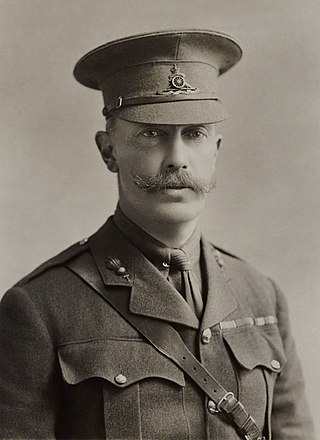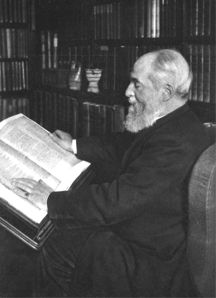Related Research Articles

George Edward John Mowbray Rous, 3rd Earl of Stradbroke, was a British nobleman from Suffolk who served as a Territorial Army officer, as a junior government minister, and as the 15th Governor of Victoria, Australia.

Colonel Windham Henry Wyndham-Quin, 5th Earl of Dunraven and Mount-Earl was an Irish peer, British Army officer and a Conservative Member of Parliament for South Glamorganshire (1895–1906).

The Norfolk Yeomanry was a volunteer cavalry (Yeomanry) regiment of Britain's Territorial Army accepted onto the establishment of the British Army in 1794. After seeing action in the Second Boer War, it served dismounted at Gallipoli, in Palestine and on the Western Front during the First World War. Between the wars it converted to the Royal Artillery (TA), and served as an anti-tank regiment in France, the Western Desert, Italy and North West Europe during the Second World War. After the war it served as a TA air defence unit and then as an Army Air Corps unit.

Prince Frederick Victor Duleep Singh, MVO, TD, FSA, also known as Prince Freddy, was a younger son of Sir Duleep Singh, the last Maharaja of the Sikh Empire.

Henry Barclay Swete was an English biblical scholar. He became Regius Professor of Divinity at Cambridge in 1890. He is known for his 1906 commentary on the Book of Revelation, and other works of exegesis.

Colonel Francis Cecil Ricardo, CVO, CBE was a British Army officer, police officer, and philanthropist.
Stubbington House School was founded in 1841 as a boys' preparatory school, originally located in the Hampshire village of Stubbington, around 1 mile (1.6 km) from the Solent. Stubbington House School was known by the sobriquet "the cradle of the Navy". The school was relocated to Ascot in 1962, merging with Earleywood School, and it closed in 1997.
General Thomas Arthur Cooke (1841–1912) was a British general whose career spanned the 19th and 20th centuries.
Sir Lionel Henry Cust was a British art historian, courtier and museum director. He was director of the National Portrait Gallery from 1895 to 1909 and co-edited The Burlington Magazine from 1909 to 1919. He was the father of Lionel George Archer Cust.
Sir Henry Knollys was an officer in the Royal Artillery, British Army, and from 1896 to 1919 a private secretary to Princess Maud of Wales.

Major-General Hugh Richard Dawnay, 8th Viscount Downe, was a British Army general and President of the Marylebone Cricket Club.

Lieutenant-Colonel Guy Greville Wilson, was a British soldier, company director, and Liberal Party politician from Kingston upon Hull. His family owned Thomas Wilson Sons & Co., which was once the largest private shipowning concern in the world.
Colonel Ulric Oliver Thynne CMG, DSO, CVO was a distinguished British soldier and champion polo player.
Colonel Vernon Stewart Laurie was an English stockbroker who also served as a territorial army officer in both World Wars. He was also Deputy Lieutenant of Essex in 1946 and High Sheriff of Essex in 1950.

Maurice Edward Barclay was an English landowner, agriculturalist and fox hunter.

Edward Exton Barclay JP was an English gentleman and foxhunter.
Humphrey Gordon Barclay CVO MC was a British Anglican priest. He was Chaplain to King George VI and Queen Elizabeth II.
Anthony Buxton was a British soldier and author.
Colonel Sir John Digby Mills was a British Conservative Party politician and British Army officer. He served as Member of Parliament for New Forest and Christchurch from 1932 to 1945.
Philip Ernest Tindal-Carill-Worsley was an English lawyer and landowner.
References
- ↑ Colonel H. A. Barclay (Obituaries) The Times Wednesday, Aug 20, 1947; pg. 6; Issue 50844; col G
- ↑ ‘BARCLAY, Col Henry Albert’, Who Was Who, A & C Black, an imprint of Bloomsbury Publishing plc, 1920–2007; online edn, Oxford University Press, Dec 2012; online edn, Oct 2012 accessed 20 Dec 2013
- ↑ "Barclay, Henry Albert (BRCY877HA)". A Cambridge Alumni Database. University of Cambridge.
- ↑ "No. 27391". The London Gazette . 27 December 1901. p. 9147.